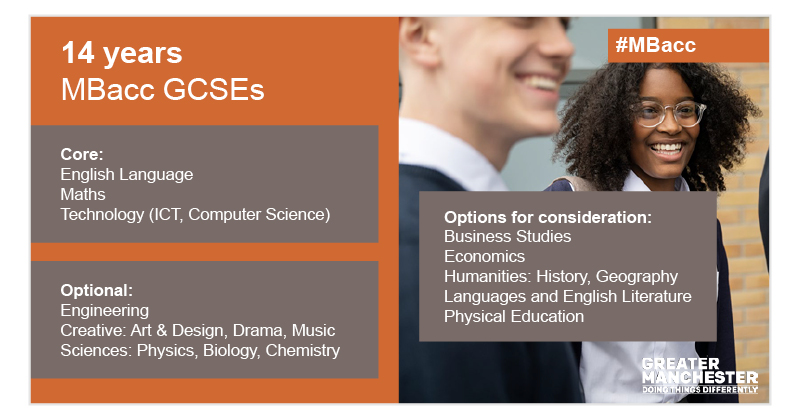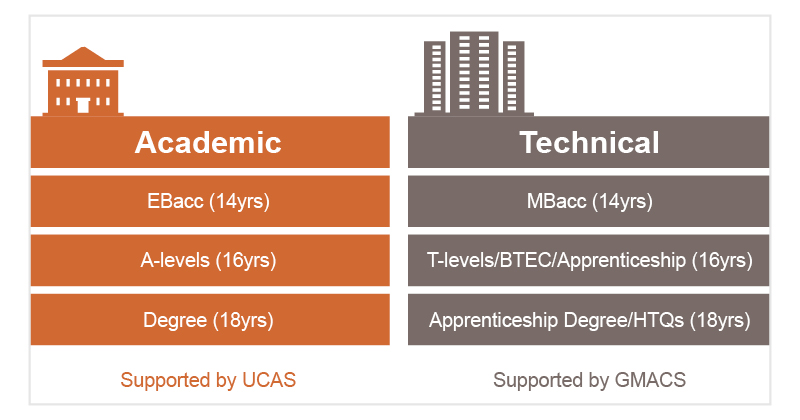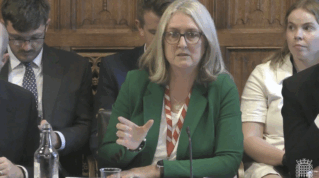Andy Burnham has launched proposals for a “Greater Manchester Baccalaureate” to promote technical education courses to the city region’s young people.
Set to be up and running for year 9 options in 2024, the MBacc will be a list of qualifications that steer pupils towards technical training routes leading to in-demand jobs in the local economy.
The MBacc proposals have put the mayor of Greater Manchester on a collision course with Department for Education ministers, who have fiercely resisted calls to expand EBacc subjects to include creative or technical subjects.
But, unlike the EBacc, there are currently no plans to publish league table measures on entries and achievements on the MBacc subjects, raising questions over how the mayor will incentivise schools to offer more technical options to 14- to 16-year-olds.
Ministers are also set on delivering a Conservative party manifesto “ambition” to see 90 per cent of pupils studying EBacc subjects by 2025.
But the Greater Manchester Combined Authority said that only 36 per cent of 16-year-olds in the area leave compulsory education with EBacc subjects, prompting Burnham to create his alternative.
“The question we’ve all got to consider is what about the 64 per cent. Are we doing enough to help those thousands of young people across Greater Manchester to find their way in life and find their way to all the good jobs that are here. I don’t think we are,” Burnham said at the launch event for his plans on Wednesday.
What is the MBacc?
Like the EBacc, the MBacc is not a qualification in itself. Burnham’s baccalaureate would include a core set of GCSEs in English language, maths and a technology subject such as ICT or computer science.

Alongside those would be options including a GCSE in engineering, creative subjects and the sciences. In addition, the mayor is consulting on including GCSEs in business, economics, humanities, languages and physical education.

With those MBacc GCSEs in the bag, the idea is that 16-year-olds will progress to one of seven “career gateways”, each leading to a T Level or other level 3 qualification, like BTECs, in: manufacturing and engineering, finance and professional, digital and technology, health and social care, creative, cultural and sport, education and early years and construction and green economy.
Then, at 18, MBacc holders would access employment, a degree apprenticeship or a higher technical qualification (HTQ).
The final set of MBacc subjects will be subject to consultation with government and local partners, the mayor’s office said.
No plans for new league tables
Published school performance measures include data on how many pupils are entered for EBacc subjects at GCSE and what grades they achieve. The DfE also incentivises schools towards EBacc subjects by offering heads opportunities to advise on policy and take part in certain government schemes.
FE Week asked the mayor whether he would be introducing similar incentives, like league tables, to encourage schools towards MBacc subjects.
“I’m not going to be in a position to change those things. I’m not seeking to. The Ebacc is important,” Burnham said.
“We’ll have to have a conversation with the DfE. None of this is confrontational. This is about making some of their policies work better.
“So T Levels, for instance… Let’s go on this journey and see if we can help knock T Levels into shape.”
‘New powers’ make MBacc possible
Since becoming the first elected metro mayor of Greater Manchester, Burnham has called for more control over post-technical education. He describes the MBacc as “the first step on the journey” for Greater Manchester to become “the UK’s first technical education city-region”.
This week’s announcement comes months after Greater Manchester and the West Midlands gained extra skills powers in the Spring Statement. The mayors from both combined authorities had pushed for more education powers as part of their “trailblazer” devolution deals, but much of what was offered was in the adult skills space.
The pair did win the ability to form “joint governance boards” between their combined authorities and the DfE to “provide oversight of post-16 technical education and skills” and become “central convenors” for careers provision in their regions.
At the MBacc launch, Burnham said it was the new board with DfE help that makes his academic and technical pathway options possible.
“The devolution trailblazer creates a joint board at the Greater Manchester level, a partnership between ourselves and the DFE. And what you are hearing today is our first sort of ‘starter for ten’. To say, look, this is what we would want to get to, through this joint board, those two clear equal paths.”
Finding tech teachers a ‘risk’
The MBacc launch coincided with day three of 12 days of strike action at The Manchester College over pay.
Anna Dawe, principal of Wigan and Leigh College and chair of the Greater Manchester Colleges Group, is working with the mayor on the MBacc. GM Colleges are “co-ordinating their specialisms” to deliver the MBacc, Dawe told FE Week, and national challenges around technical teacher recruitment are a risk.
“It is certainly a risk we are living and breathing,” she said. “We’re working collaboratively within Greater Manchester Colleges around staffing, around how we look at different methods of delivery specialisation which will alleviate some of those issues.
“But it actually highlights and puts pressure on the investment that is needed in technical education.”

















Yet more fragmentation of education policy, this time with a regional aspect.
If the name ‘postcode lottery’ wasn’t already taken, it would be a perfect moniker.